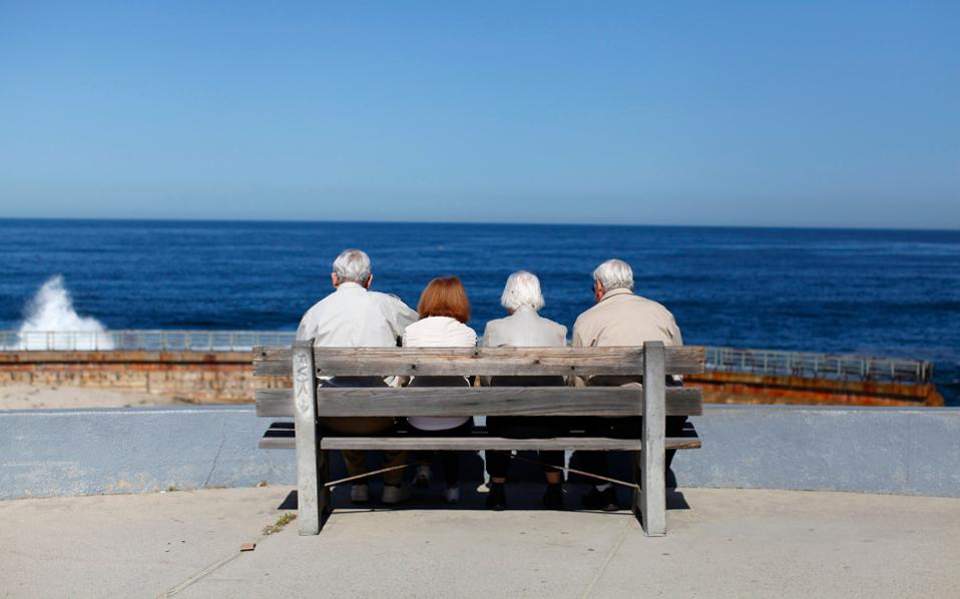Greece's demographic problem threatening economic recovery
THANOS TSIROS,
ELEFTHERIA KOURTALI
TAGS:
Society,
Economy
Greece’s aging population is seriously undermining the long-term growth prospects of the country’s economy, official data suggest amid warnings by prominent economists.
At the outset of the financial crisis in 2010, Greece’s active population – those aged between 20 and 64 – stood at 7.045 million people. Today that number stands at 6.8 million. People aged 20-40 years account for 40 percent of the population now compared to 46 percent in 2010.
And things are only likely to get worse, according to the United Nations, which forecasts that by 2025 the proportion of the active population in Greece will have dropped below 6.5 million, with only 2.3 million people forming the 20-40 age group.
Moreover, the number of people aged 65 and over is expected to soar to 2.535 million by 2025 from 2.1 million in 2010 and 2.237 million in 2015.
Greece’s falling birth rate has been highlighted as a serious problem by international organizations and prominent economists.
Tellingly, the number of children up to the age of 4 is already on the slide, dropping from 585,000 to 503,000 in the period stretching from 2010 to 2015, while this figure is expected to plummet to 404,000 by 2025, according to projections by the UN.
Greece's demographic problem threatening economic recovery | News | ekathimerini.com
